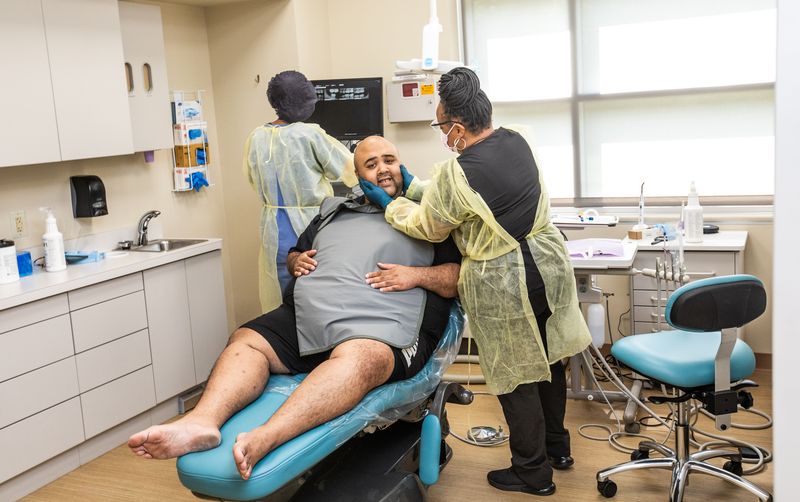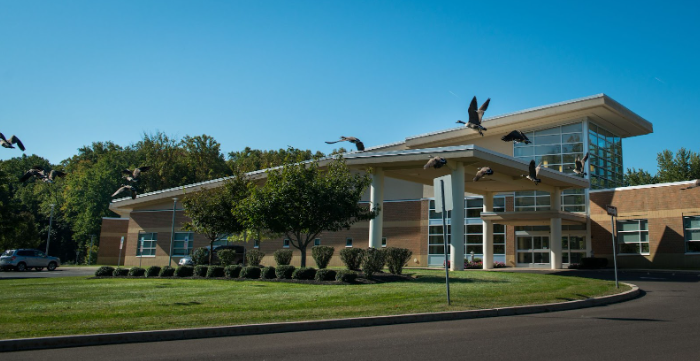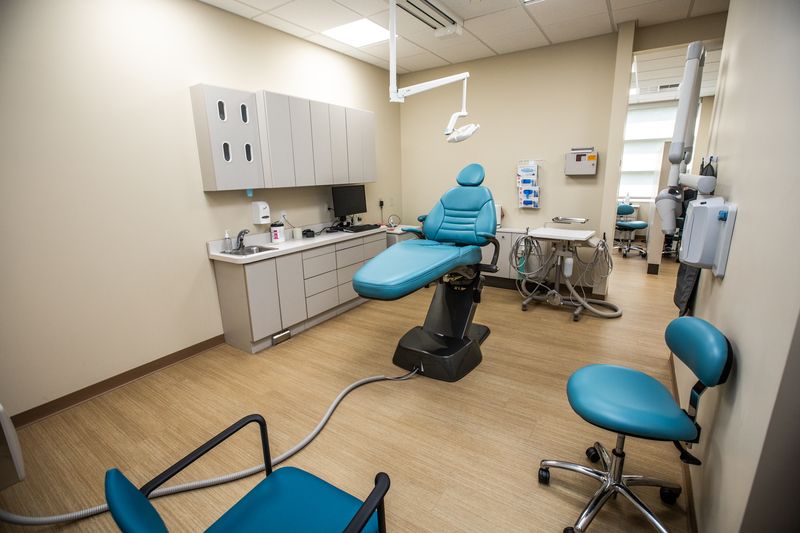Visiting the dentist is a fundamental aspect of maintaining good oral health that many people, even neuro-typical ones, feel anxious about and avoid. For children with Autism Spectrum Disorder (ASD), the experience can be extra daunting due to the unfamiliar environment filled with new sounds, sights, and stimuli. With the right approach and understanding, however, dental visits can become a manageable, even positive, experience for children with autism. This guide aims to help caregivers find a dentist for kids with autism and provide strategies to prepare for and manage dental appointments.
Understanding Dental Sensitivities For Children with Autism
 Children with autism can exhibit a range of sensitivity issues. Some kids may have challenges with routine dental hygiene habits like brushing and flossing. Some oral habits like teeth grinding, tapping or hitting their mouth and teeth, chewing nonfood objects, or eating sugary foods may also increase their risk of dental problems if not addressed. Additionally, it may be difficult for some to communicate pain or problems with their teeth, resulting in delayed care.
Children with autism can exhibit a range of sensitivity issues. Some kids may have challenges with routine dental hygiene habits like brushing and flossing. Some oral habits like teeth grinding, tapping or hitting their mouth and teeth, chewing nonfood objects, or eating sugary foods may also increase their risk of dental problems if not addressed. Additionally, it may be difficult for some to communicate pain or problems with their teeth, resulting in delayed care.
Children with ASD often have heightened or reduced sensitivity to sensory input, which can make the dental environment challenging. Sensory-seeking children might find the vibration of an electric toothbrush comforting, while sensory-averse children may struggle with the taste of toothpaste or the sensation of brushing. A dentist trained in treating children with autism knows that choosing unflavored toothpaste for one child or engaging in a step-by-step process for tooth brushing with another may help reduce these issues.
Establishing a Toothbrush Routine at Home
For children who are sensitive to oral sensations, establishing a toothbrushing routine requires patience and gradual exposure. Start with non-intrusive steps like applying gentle pressure around the face and progress towards introducing a toothbrush without toothpaste. Accompanying these activities with visual cues or songs can also make the process more engaging and predictable for the child.
Preparing for the Dental Visit
 Preparation is key to a successful dental visit. Familiarizing the child with the dental office beforehand can significantly reduce anxiety. Consider visiting the dental office for a non-treatment visit, where the child can meet the staff, explore the environment, and sit in the dental chair without undergoing any procedures. Such visits can build familiarity and reduce fear of the unknown.
Preparation is key to a successful dental visit. Familiarizing the child with the dental office beforehand can significantly reduce anxiety. Consider visiting the dental office for a non-treatment visit, where the child can meet the staff, explore the environment, and sit in the dental chair without undergoing any procedures. Such visits can build familiarity and reduce fear of the unknown.
The Role of Dentists for Kids with Autism
Pediatric dentists receive training to cater to the needs of children, including those with ASD. Their expertise in behavior management techniques and understanding of sensory sensitivities make them well-equipped to provide a supportive and accommodating dental care experience. Caregivers need to communicate their child’s specific needs and concerns with the dentist ahead of the appointment to ensure a tailored approach.
Tips on Finding the Right Autism-Friendly Dentist
 If you’re actively looking for a dentist for your child with autism, here are a few guidelines to help you make the right choice:
If you’re actively looking for a dentist for your child with autism, here are a few guidelines to help you make the right choice:
- Look for a pediatric dentist who has worked with children who have special needs and ask what procedures they have performed.
- Make sure your dentist offers a pre-visit to allow you and your child to meet the doctor and staff before any appointments and begin getting them comfortable with the environment.
- Check if the environment is conducive to children. Talk to your dentist and ask them how they handle sensitivity to light or sound.
- Share your child’s particular sensitivities and challenges with the dental team so they can be prepared to manage them.
- Ask about sedation methods used, like “laughing gas” or IV sedation, and how they determine whether sedation is appropriate for your child.
- Discuss how the team communicates with a child who has autism and their caregivers before, during, and after a procedure.
The dental professionals at Penn Dental Medicine at Woods are well-versed in the various aspects of dental care for kids with autism, including understanding the importance of an accurate assessment of a child’s current dental and medical history, and the need for special accommodations. The Penn Dental facility is designed with the specific requirements of patients with autism in mind, featuring enhanced accessibility, optimal lighting, sound, stimulus control, a quiet dental suite where doors can be closed, and a range of specialized dental equipment to provide a comfortable and anxiety-free environment for patients.
If you are looking for a dentist for your child with autism, you can request an appointment here. We have appointments available now. If you have questions about our facility and experience, please feel free to call us at 215-750-4004.


